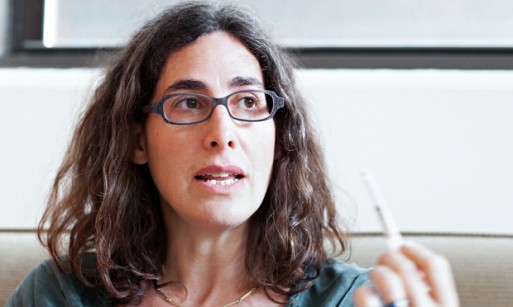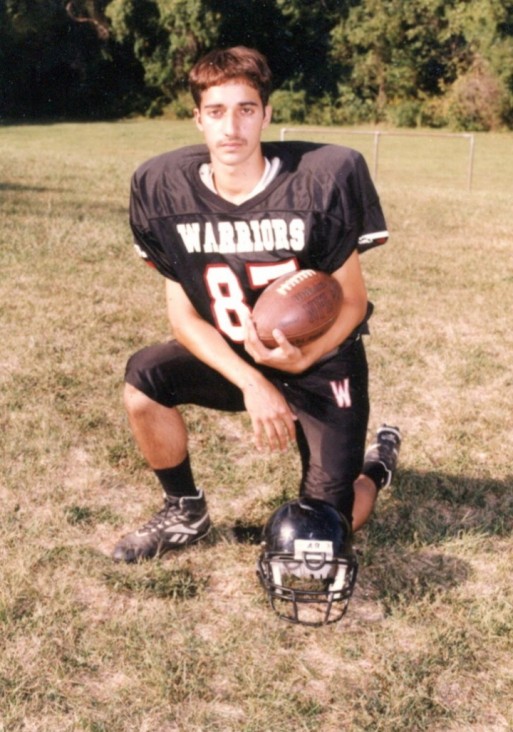Before television screens were a staple in every home, people huddled next to the radio to hear the latest entertainment. These old time radio shows thrived on our curiosity about mysteries, especially if they were of the murderous variety. Serial is a modern-day version of this classic genre. The difference is: this story is real.
As Serial‘s narrator Sarah Koenig explains, the story of Adnan Syed and Hae Min Lee has it all. Star-crossed lovers defy their traditional religious upbringings to be together. Like most high school relationships, their love is tumultuous and passionate. Like most high school relationships, it doesn’t last.
Here’s where Adnan and Hae’s story takes a dark turn. In 1999, Hae Min Lee is found dead, and Adnan is convicted of her murder. It took a jury less than a few hours to send the 17 year-old Adnan to prison for the rest of his life. He insists he’s innocent.
That’s where the story ends, right? Well, maybe not.
There’s the matter of a strange phone call Adnan supposedly makes when he said he was at track practice. There’s his alleged accomplice Jay’s inconsistent confession to police. There’s a witness who swears she saw Adnan at the library when the murder was supposed to have been happening.
In short, there’s a lot we don’t know.
This is what makes Serial so rabidly popular among its fans. As Koenig digs through the details, the story only gets murkier. One minute, you are convinced that Adnan never could have been capable of murdering his ex-girlfriend, and 15 minutes later you are convinced he’s the only one who could have been responsible.
It’s maddening, but that’s why we love it. Our brains experience a phenomenon called the Zeigarnik Effect. It says that we are more likely to remember a task that’s unfinished than we are to remember something that’s been satisfied. When you combine this effect with our curiosity about death, you get the super glue of true crime stories.
Murders force us to think about sudden deaths, our own mortality and human nature itself.
Death isn’t a topic we’re used to discussing in Western culture. We speak about murders in especially hushed tones. Murders force us to think about sudden deaths, our own mortality and human nature itself. What would drive one human being to forcefully end the life of another? We can explain specific cases away with motives, but there will never be a clear-cut answer to this question.
Adnan’s case makes no sense when we examine the alleged motive. The prosecution says Adnan was hurt after Hae broke up with him, but the facts paint a different picture. Friends claim Adnan had already moved on to see other girls after their breakup.
Listeners are left in a mental tug-of-war only a real-life Sherlock Holmes could sort through.
Adnan says he did not kill Hae, while Jay says Adnan absolutely killed her. Jay doesn’t have a reason to lie, but Adnan also doesn’t have a convincing motive against Hae. Listeners are left in a mental tug-of-war only a real-life Sherlock Holmes could sort through.
As the Serial podcast comes to a close this week, no one is sure whether we’ll get a definitive answer about this case. Everyone listening to the podcast wants closure for Hae’s family. The stakes are high. A truly guilty verdict for Adnan would mean the right person is behind bars, but if he’s innocent, two young lives will have been lost.
The one question no one wants to hear on the last episode is “If not Adnan, then who?” But life doesn’t always end like a crime novel. Sometimes, no one has the answer.
To read up on this case, take a look at this article.
Check out our blog post about how authors portray deaths in thriller novels to learn more about our fascination with this genre.
If you or someone you know has experienced the sudden death of a loved one by homicide, you have resources to heal. Read our interview about families coping with a child’s murder.

 On Serial and Society’s Fascination with True Crime Stories
On Serial and Society’s Fascination with True Crime Stories






 Harmony Amidst Change: Japan’s Kezouin Fuchu-shi Cemetery
Harmony Amidst Change: Japan’s Kezouin Fuchu-shi Cemetery














